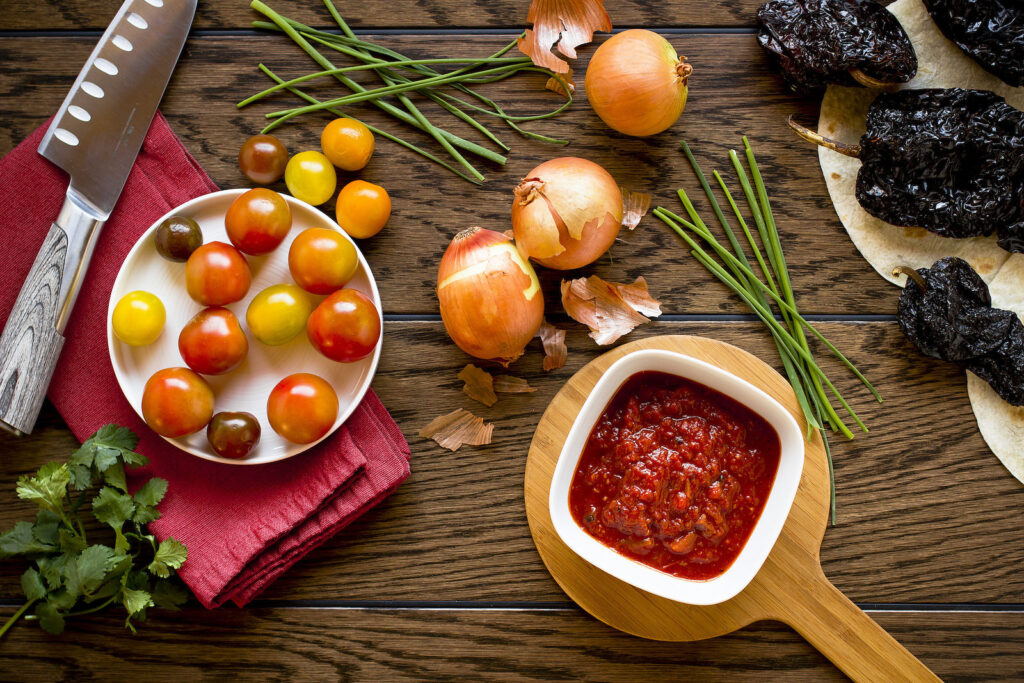Families in one of West Virginia’s most food-insecure counties will receive free groceries delivered to their door this summer. Food Insecurity is defined as a lack of consistent access to enough food for every person in a household to live an active, healthy life.
In Mercer County, nearly 175 food-insecure families get free, nutritious meal deliveries via DoorDash – working in partnership with Mountaineer Food Bank, Save the Children and Mercer County Schools. The mission is to combat rural child hunger in the Mountain State.
The Mountaineer Food Bank received $100,000 in Innovation Lab funding earlier this year.
Gabriela Schoolcraft, the communications coordinator for Mountaineer Food Bank, said that money helped start their Extra Mile Program
“This program allows us to increase access to food for families who are facing transportation barriers within Mercer County,” Schoolcraft said. “Mercer County was selected to pilot the program because they have one of the highest food insecurity rates in the state of West Virginia.”
The summer meals project was started by Save the Children’s Rural Child Hunger Research and Innovation Lab. Cathryn Miller is Save the Children’s West Virginia State Director.
“With the Rural Child Hunger Research and Innovation Lab, we launched open invitations for partners here in West Virginia and across many other states as well to apply their innovative ideas for how they can help target food insecurity,” Miller said.
Project Dash is DoorDash’s initiative to empower food banks, food pantries, and other social impact organizations to leverage DoorDash logistics to increase access in their communities. Daniel Riff is a senior manager with DoorDash Drive.
“What that looks like is a partner like Mountaineer Food Bank, leveraging our platform in a similar way to a restaurant, a grocer, a retailer,” Riff said. “But instead of having those types of deliveries, our network of Dashers will come to pick up from the food bank or a food bank truck and distribute directly to clients of the food bank.”
Mercer County Schools’ Integrative Collaborative Assistance Resources Education (ICARE) team has worked to identify and enroll the student families in need who are now participating in the project.
“In many rural communities, such as Mercer County, there’s limited access to stores with fresh food,” Miller said. “And it makes it very difficult for these rural families to give their children the nutritious meals that they need to grow and develop.”
The deliveries have been underway for over a month and are planned to double to families this summer. The effort is meant to ensure kids and families can continue to have consistent, nourishing meals after area schools close.
“It’s critical for brain development in children to have the proper nutritious food so that they can fully reach their potential,” Miller said. “And it’s especially important in the summer because schools are often the lifeline for children. Families rely on the school to provide breakfast and lunch, and if the children are lucky, some schools offer snacks and even dinner at the end of the day. And it’s just critical. And so when school’s out for summer, I know it’s often a worrying concern for not just families, but the children themselves.”
Riff said one of the great things about the program is its convenience.
“So Food Bank trucks go around to a few different spots in Mercer County. And from there DoorDash drivers, -, go to those spots, pick up several orders of groceries at a time, and deliver those in a string of deliveries to the residences of people that are participating in the program,” Riff said. “It is convenient for anyone to receive food this way. And it also is a great opportunity for local Dashers in the area, to have earning opportunities by delivering for this program as well.”
Schoolcraft said the COVID-19 pandemic brought the issue of food insecurity to the light nationally, but especially in West Virginia.
“With the emergency allotments ending, that really hurts families who are struggling with food insecurity,” Schoolcraft said. “We hear in lines at our distributions and through our partner food pantries how much families are struggling to afford groceries right now and other basic living expenses because of inflation. So, families are really struggling, especially with those allotments ending.”
According to Schoolcraft one in five children are facing food insecurity currently in West Virginia.
“With the Extra Mile program, we’re really grateful that we could reach more children and reach more families because we know the need is so high right now,” she said.
In each bi-monthly delivery, families receive protein, produce, and dairy with a mix of shelf-stable items.
“One of the cool things about this program is that they’re neighbors centered,” Schoolcraft said. “So if a family doesn’t have access to an oven or stove, they’re provided with meals that they can cook at home based on their needs.”
Appalachia Health News is a project of West Virginia Public Broadcasting with support from Charleston Area Medical Center and Marshall Health.






















